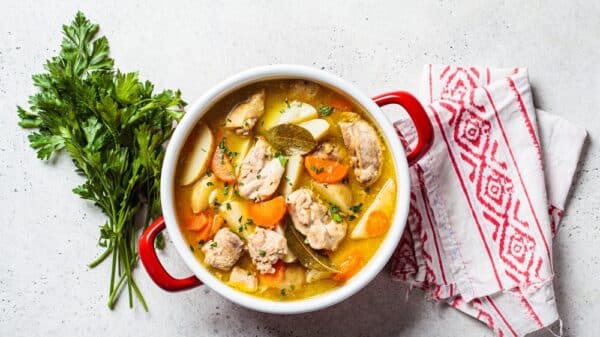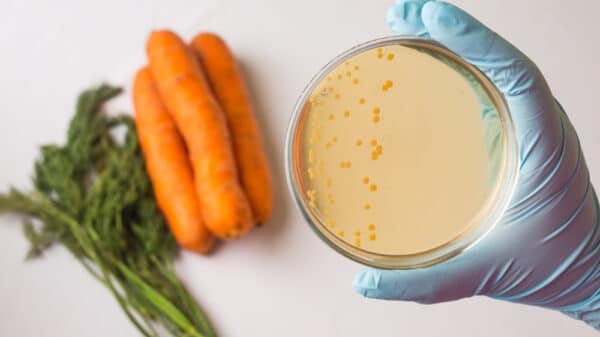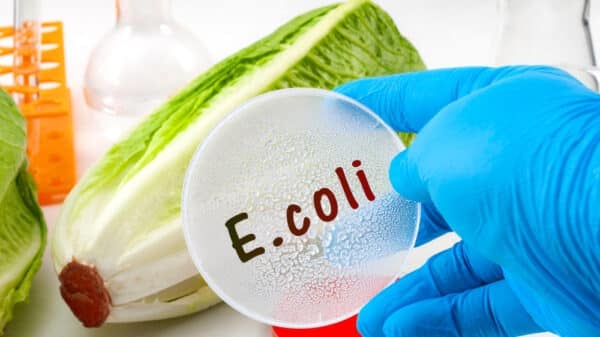Whether you’re diving into holiday baking or aiming to increase your protein intake, you might feel frustration creeping in as egg prices soar across the U.S. Last year, the average price of eggs rose a staggering 70% compared to the previous year, leaving many consumers scrambling. Experts warn that this holiday season could see even further increases at the checkout counter. While there are a multitude of factors leading to price hikes, the latest outbreak of bird flu is becoming a significant part of this story. Understanding this situation before making your next grocery run could save you both stress and money.
What exactly is the link between bird flu and egg prices? A recent press release from the U.S. Department of Agriculture (USDA) paints a concerning picture. Over 35 million egg-laying hens have died from the bird flu outbreak that has impacted farms across 12 states, with the total losses affecting more than 100 million birds nationwide. In fact, only Louisiana has reported no cases so far, according to the Centers for Disease Control (CDC). This outbreak is so severe that it has even prompted additional testing regulations for raw milk products.
Post Holdings, which oversees several food brands, forecasted a loss of over 12% of their egg supply due to bird flu in December and beyond. This isn’t the first time they’ve faced significant setbacks; earlier this year, they recorded losses from farms in Iowa and Minnesota that amounted to another 14%. One of their subsidiaries, Michael Foods, reported the death of 4.5 million birds this year alone, drastically impacting their production capabilities. In fact, their 2023 earnings report revealed that eggs and egg products accounted for over one-third of their total sales—a clear indicator of how critical eggs are to their business.
As the situation evolves, experts are noting a troubling trend. The bird flu isn’t just targeting conventional egg producers anymore; it’s also affecting cage-free and organic operations. In California, for example, legislation requires that all shelled eggs sold come from cage-free environments. As a result, egg prices in the state have surged, almost doubling in the wake of the outbreak. It’s important to note that cage-free eggs compose 40% of the egg consumption in the United States, which means that a large segment of the market is feeling the pressure.
So, what’s the forecast for egg prices moving forward? As of November 2024, the average price for a dozen Grade A large eggs hit $3.64, reflecting a steep rise of 30% from just the prior month, according to the Bureau of Labor Statistics. Prices may climb even higher if egg-laying hen populations do not recover swiftly, leading to a persistent shortage that pushes demand even further.
Concerned about the safety of eggs amid these outbreaks? You can rest easy. Agencies like the FDA, in partnership with the USDA, have assessed the risks and determined that the likelihood of contracting bird flu from eggs is extremely low. While instances of high-pathogenic avian influenza (HPAI) are concerning, both agencies confirm that commercially sold eggs undergo rigorous sanitation processes. Eggs are stored at refrigeration temperatures, which are around 40°F, ensuring they meet safety standards before they even make it to your grocery store.
Bryan Quoc Le, PhD, a recognized food scientist, emphasizes that washing eggs at home can actually do more harm than good. Commercial processes use specific sterilizing agents that aren’t typically found in everyday household items. Washing could inadvertently remove a protective coating on the eggs which helps to fend off spoilage and bacteria. It’s best to leave the eggs as they are until you’re ready to use them.
So what should you do moving forward? If possible, consider getting your eggs from local farms—this could offer a fresher and potentially more economical option. However, with heightened demand from holiday baking and the continuing bird flu impact, expect prices to stay elevated. Some experts suggest we won’t see prices stabilize until the early part of next year, as farms work diligently to enhance their egg-laying populations.
For those of you reluctant to shell out the extra cash for eggs, don’t worry; there are an array of effective substitutes you can utilize. Chia seeds, flaxseeds, and even tofu can stand in for eggs in many recipes while bringing their own unique flavors and textures. You might find that applesauce works wonderfully in baking, giving you a moist result, but it may not be the best choice for savory dishes like quiches.
As we navigate these complex economic challenges with egg prices and food safety, remember that you’re not alone. Understanding the broader context can empower you as a consumer, allowing you to make more informed choices at the grocery store while still enjoying all the delicious holiday treats you love.

































